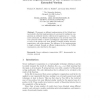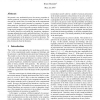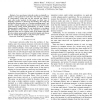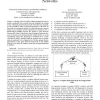179 search results - page 25 / 36 » Adversarial Leakage in Games |
ACNS
2010
Springer
14 years 1 months ago
2010
Springer
Abstract. We present an efficient implementation of the Orlandi protocol which is the first implementation of a protocol for multiparty computation on arithmetic circuits, which is...
SP
2006
IEEE
14 years 3 months ago
2006
IEEE
We present a new mechanized prover for secrecy properties of security protocols. In contrast to most previous provers, our tool does not rely on the Dolev-Yao model, but on the co...
INFOCOM
2005
IEEE
14 years 3 months ago
2005
IEEE
Abstract— In a peer-to-peer network, nodes are typically required to route packets for each other. This leads to a problem of “free-loaders,” nodes that use the network but r...
AAAI
1996
13 years 11 months ago
1996
The state space of most adversary games is a directed graph. However, due to the success of simple recursive algorithms based on Alpha-Beta, theoreticians and practitioners have c...
AINA
2007
IEEE
14 years 4 months ago
2007
IEEE
— Quality of Service (QoS) of disadvantaged networks is usually considered from a purely network standpoint in existing works. Adversarial intervention in such networks is not an...




